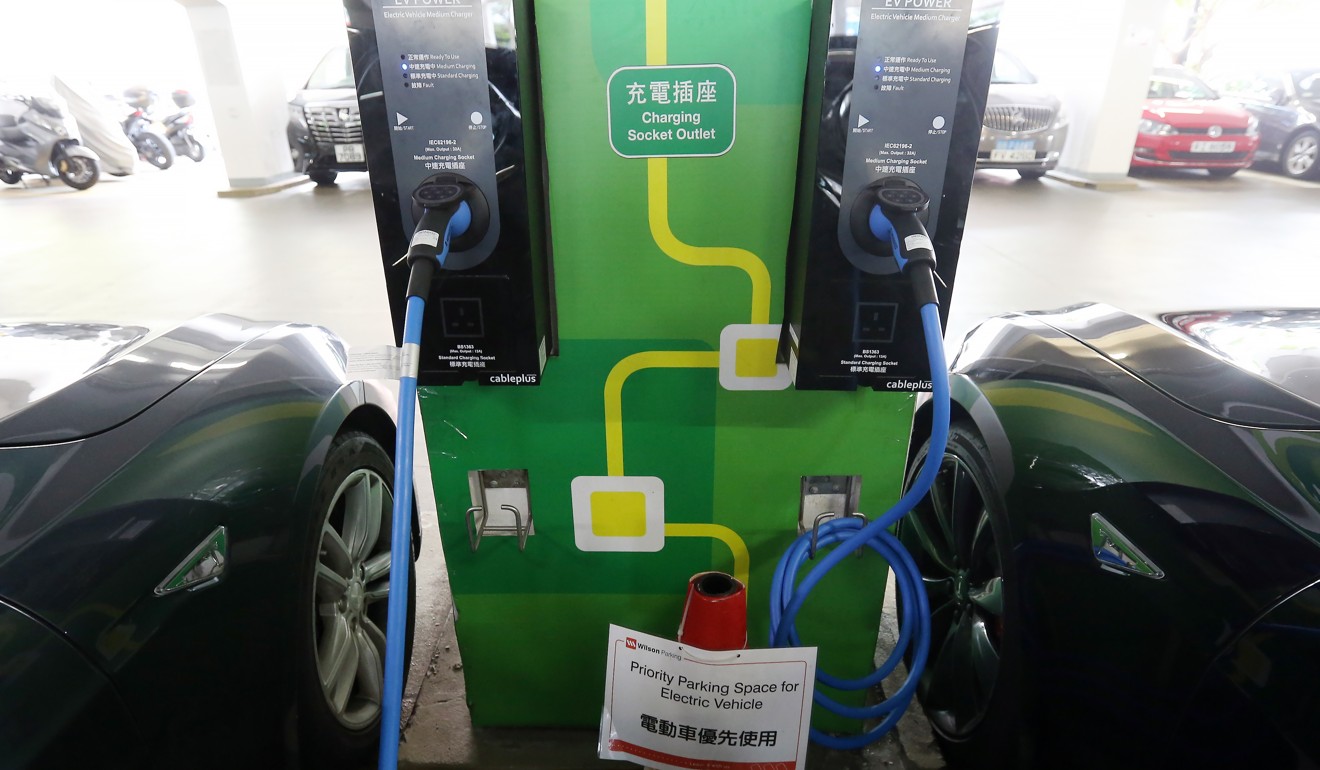
Hong Kong government investigated over planning for electric car roll-out
While the number of electric cars on the road has jumped by more than 150 times since 2011, the number of charging spots has not even doubled
The Ombudsman has launched an investigation into whether the government could have planned better for the spread of electric cars, as the number of charging ports has nowhere near kept pace with the number of the cars on the city’s roads.
There are more than 150 times as many electric cars on the road today as there were in 2011, but the number of charging spots in car parks has not even doubled.
The watchdog will look into that growth disparity, which came despite a government policy of encouraging people to buy electric vehicles.
China’s electric car boom to spill over into Asia-Pacific bonanza
A group representing electric car owners applauded the move.
As part of the government’s plan to improve air quality, then chief executive Donald Tsang Yam-kuen announced in 2009 he would encourage the use of electric vehicles. The aim was for electric or hybrid cars to make up 30 per cent of all private cars in Hong Kong by 2020.
The policies, which included a tax break and relaxed planning guidelines, prompted a surge in the number of electric private cars, from 69 in April 2011 to 10,588 in April this year.
But the number of public charging ports grew much less quickly, rising from 872 in 2011 to 1,518 in 2016, a 74 per cent increase.

“As the government has in its policy documents openly given its support for promoting the use of [electric vehicles], it is only natural for members of the public to have a reasonable expectation of the government to plan and arrange for more ancillary facilities,” Ombudsman Connie Lau Yin-hing said.
Apart from looking for shortfalls, the investigation would also identify potential areas for improvement, Lau said.
The Environment Bureau said it would fully cooperate with the investigation.
Locky Law, a member of Charged Hong Kong, an electric vehicle lobbying group, welcomed the review.
“To me there are no problems with the government’s vision and planning. The issue is execution,” he said.
He pointed out that electric vehicles currently only make up 1 per cent of all private cars, a far cry from the government’s 2020 target.
“The fewer electric cars there are on the roads, the less incentive there will be for developers to install charging ports,” he said.
“It’s a vicious cycle.”

